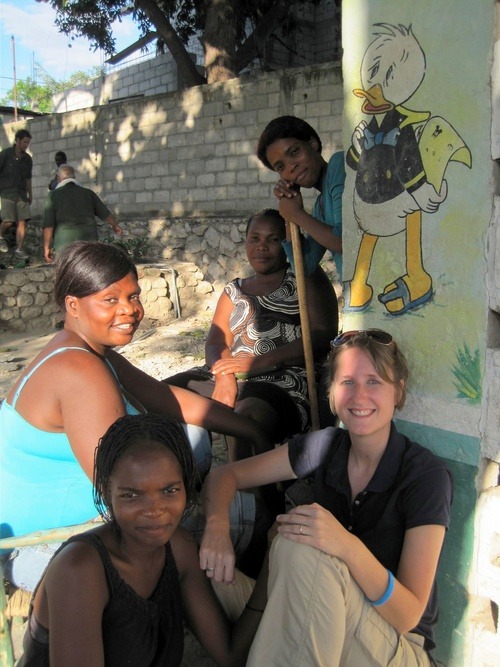Facebook and Twitter and Tumblr, OH MY!
I will be honest; when I picked up this book I had a preconceived notion from the title that the pages would discuss how technology and media have cultivated hyper-connectivity, and thus how the hyper-connected generation is redefining community. I was hoping for a sequel to the highly-solution-oriented The Church of Facebook by Jesse Rice.[1]
Murray Jardine’s The Making and Unmaking of Technological Society was not what I expected. The historical facts were at times confusing, and his theological conclusions premature. His basic premise is that the social and political ideologies that have guided Western society have consistently underestimated and therefore undermined human creativity. As a result, this dominant way of thinking has left society unprepared for the moral, social and economic challenges caused by capitalistic production of goods and services, ever evolving social structures, re-ordering of our environment, and even the shaping of our minds and bodies.[2] His solution:
“The only possible alternative to this exhausted culture would be a culture based on the biblical understanding of God, the world, and humanity because this understanding can make sense of human creative capacities and their technological manifestation.”[3]
He continues,
“Thus, what is required is the formation of local communities that can put the biblical understanding of human agency into practice and develop an alternative to liberal capitalist democracy as it approaches its collapse. This would mean developing a culture that embodies the virtues of faith, hope and love through such places as a democratized polis, apprenticeship, ritual, prophecy, and narrative, which can concretely set limits on human action even in a situation where humans have discovered that they have a very substantial creative capacity.”[4]
I met with one of my Presbyterian colleagues this week, and we specifically discussed this book. Our conversation can be summarized as follows:
One of the notions of the Reformed tradition is that we are made to live a life sustained by the never-ending grace of God as shown to us through Jesus Christ. One of the pitfalls of this all-sufficient benevolence is a secondary notion, “cheap” grace. This rears its ugly head in many situations in our lives. Sociologist Christian Smith referred to this in a different way. He calls it “moralistic therapeutic deism,”[5] or how does God make me happy and how do I feel good about myself? These inward facing notions propagate a gospel that encourages us to think singularly about God. How do I relate to God? The issue is found in the tense. Instead of saying ‘I’, we have to say ‘we’ as the family of God. God is singularly focused on each one of us but also on all of us. The creativity of God is that He can focus on each hair on our head, as the Psalmist reminds us, and also on the whole community simultaneously. The community is stronger than the individual; therefore, God is stronger through the community than just one person. Our society’s focus is readily apparent. Our tweets and Facebook posts concentrate on who I am and how I relate to the community, not who we are and how do we relate to one another? Semantics matter.
Have you noticed a recent trend on Facebook and Twitter? Hundreds of articles continue to appear on my news feed with titles like, “50 Family Dinner Conversation Starters,” “5 Questions to Ask Your Spouse Every Night,” “10 Conversations to Have with Your Children,” “13 Simple Ways to Have More Meaningful Conversations,” and too many more to name. This begs the question: When did we forget how to talk to one another? Must we have a list made for us to have a conversation with someone we know or to start a conversation with someone we do not know? Are we reading these lists instead of actually having conversations?
Historically, we once lived in communities, played in playgrounds, and enjoyed sweet tea on the porch on a hot evening. In each of these instances life revolved around conversation, oral exchange. Technology and social media changed this. Feelings are no longer involved. Instead, “posts” and “texts” encourage us to portray our lives in 140 characters or less. We often only present an air of perfection, or what makes us appear to have perfect lives. These posts or texts are a false substitute creating cheap, surface-level relationships. These are snapshots into our lives, not authentic meaningful conversations or exchanges of information.

One scene from last season’s Downton Abbey comes to mind, taking place at a dining room table. Each person was assigned a seat. Gender alternated, and midway through the meal, Lord Grantham nodded his head to the person across from him, and everyone at the table switched conversation partners. Thus, the meal started with Lord Grantham speaking to the person at his left and ended with him sharing conversation with the person on his right. This was intentional and strategic. But, had everyone read “50 Family Dinner Conversation Starters” before the meal? Of course not! Naturally, there was an appreciation of the speech-dimension of the human experience. Face-to-face communication was the norm.
Creative power cannot simply turn inward, toward a transformation of ourselves, or outward toward a transformation of the natural world. It must be a combination of both. God commands us to love Him and to love others. These are not mutually exclusive. As Brennan Manning said, “The litmus test of our love for God is our love of our neighbor.”[6]

My most meaningful moments in the mission field have not come from posting pictures from a project site or sending a thought-provoking tweet about poverty. They are the tangible pieces of long hours cutting PVC pipe for a water system or laying the concrete bricks for a house. My heart changed because of the Sunday afternoons in Montrouis, Haiti with the community women under the shade of a mango tree, hearing the tales of their lives, how God has saved them and how He is using them. My world changed by driving down the road with Olga and Marta, who told their testimonies of faith, how God saved one from a drug-addicted husband and the other from the brink of suicide. And in these times, my heart opened and softened.
The love of God was made personal and present to me in the voice of those I took the time to have a real, authentic conversation. Last week, we pondered if one person could change the world. One of my top five favorite authors, Dr. Seuss, said, “To the world, you may be one person; to one person, you may be the world.” Not by giving a “like” or a “retweet”, but by listening and speaking about the things that matter to our hearts, we have the ability to change the lives of our neighbors, and ultimately ourselves.
Be intentional. Have purposeful conversations. Actively listen. Respond when necessary. Practice makes perfect. There is my list of five things vital for our generation in a technological society.
[1] Jesse Rice, The Church of Facebook (Colorado Springs: David C. Cook, 2009).
[2] Murray Jardine, The Making and Unmaking of a Technological Society: How Christianity Can Save Modernity From Itself (Grand Rapids, MI: Brazos Press, 2004), 277.
[3] Ibid., 279.
[4] Ibid., 279.
[5] Christian Smith, Soul Searching: The Religious and Spiritual Lives of American Teenagers (Oxford, England: Oxford University Press, 2005).
[6] Brennan Manning, The Ragamuffin Gospel (Sisters, OR: Multnomah Publishers, 2000).
Leave a Reply
You must be logged in to post a comment.